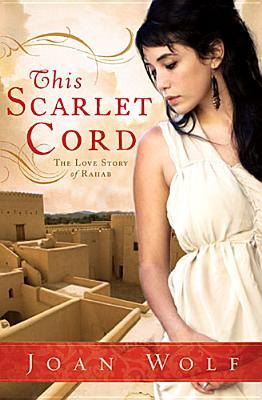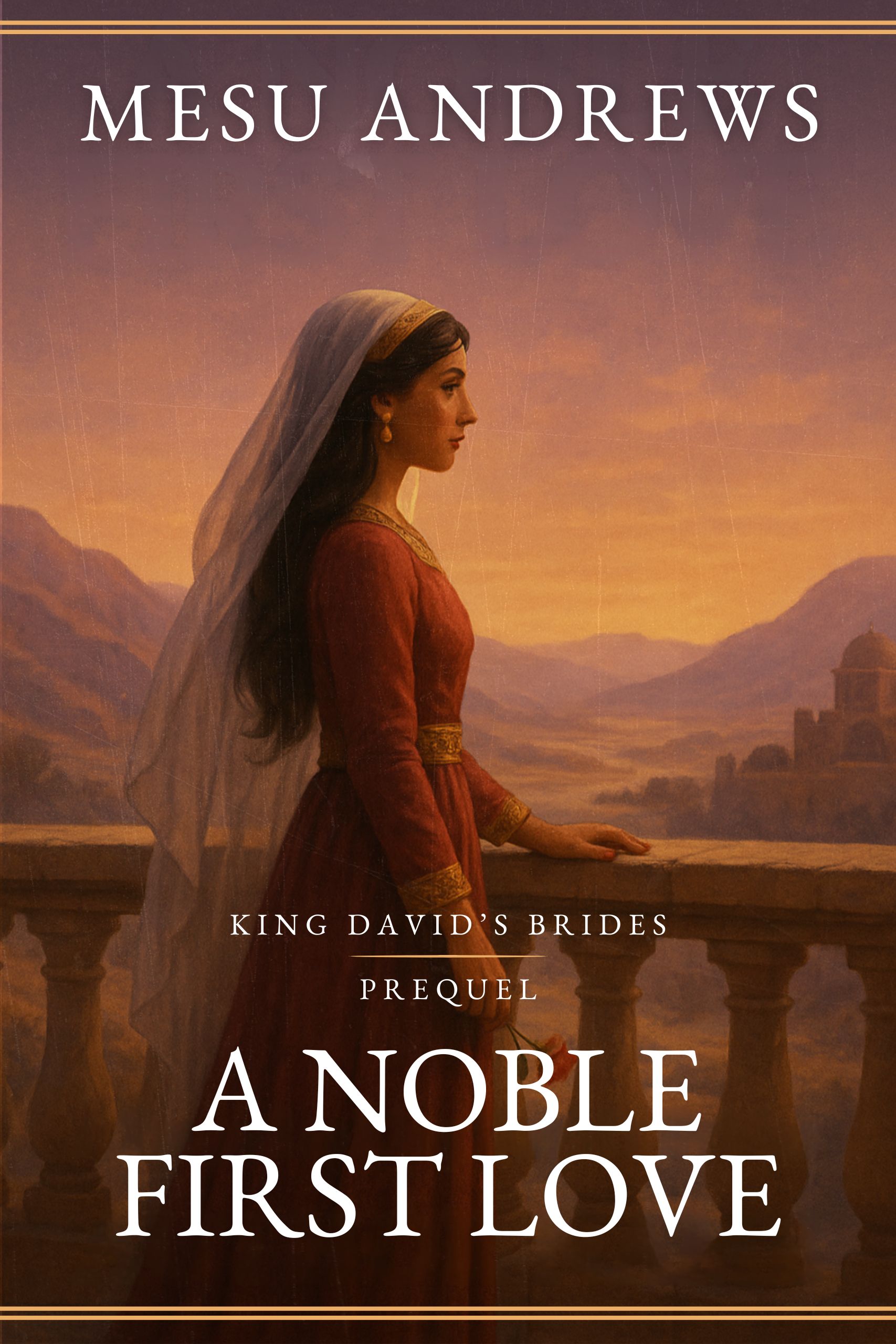 This Scarlet Cord
This Scarlet Cord
by Joan Wolf
Review by Mesu Andrews
Book Description
Hidden within the battle of Jericho is the story of Rahab, a beautiful and brave young Canaanite woman who aided the Israelites by hanging a piece of scarlet cord from a window. This act of faith changed her life by placing her in the genealogy of Christ.
Rahab is the youngest daughter of a Canaanite farmer, taken to Jericho for the pagan New Year so her father can find her a wealthy spouse. Sala, the Israelite boy who had once saved her from being kidnapped, is also in Jericho. When the two young people meet again they admit their love for one another, but their different religions make marriage impossible.
Their love story plays out against the background of Jericho’s pagan rites. It is only when the One True God of Israel comes into Rahab’s life—and she realizes what He is calling her to do—that she and Sala can come together.
Witness Rahab as a young woman determined to find her destiny as she follows her heart toward true love . . . and the One True God.
My Review ☻☻☻☺☺ (3 out of 5 smiles)
Rahab is a fascinating story, and Joan Wolf skillfully guides us from the shores of Gaza to the Canaanite city of Jericho. I love the unexpected in biblical novels—the story behind, beneath, above, and around the few verses our Bibles give us—and this book added lots of story. The characters were likeable. Rahab was sassy, yet sweet. Sala (Salmon of Scripture) was a handsome, strapping young man of integrity with enough fire to create the air of danger every woman loves. As I said, I love the unexpected in biblical novels, but I struggle with unsupported.
To be fair, This Scarlet Cord is the third novel in two years I’ve read on Rahab’s story. The first was in 2011 from a self-published author, Cynthia Leavelle, and though the flow of her writing needed work at the time, her biblical research was meticulous and flawless.
I read the second story of Rahab in Tessa Afshar’s Pearl in the Sand. Splendid writing and an accurate representation of the Canaanite culture and Scripture’s story of Jericho’s conquest.
This Scarlet Cord began with a bang, and I was immediately engaged in an intriguing story of a young Canaanite girl and Israelite boy, who met in the seaport of Gaza. Wait! Why were Israelites living in a Canaanite seaport? I thought they were all wandering in the wilderness with Joshua.
The story harkened back to generations earlier, when Joseph became vizier in Egypt and Jacob moved his household there to escape the drought. The story explained that some of Jacob’s household remained in Canaan at the time, but Genesis 46:6-7 says,
“They also took with them their livestock and the possessions they had acquired in Canaan, and Jacob and all his offspring went to Egypt. He took with him to Egypt his sons and grandsons and his daughters and granddaughters—all his offspring.”
This Scarlet Cord also asserted that Rahab was a virgin when she and Sala (Salmon) married; a young girl, living in a relative’s house in Jericho. But Joshua 2:1 says,
“Then Joshua son of Nun secretly sent two spies from Shittim. ‘Go, look over the land,’ he said, ‘especially Jericho.’ So they went and entered the house of a prostitute(INNKEEPER) named Rahab and stayed there.”
Scripture describes Rahab with a Hebrew word that scholars have translated “prostitute” but they’ve footnoted it as “innkeeper.” This tells us that scholars aren’t certain Rahab was a prostitute, but she seemed at least to be in charge of the home in which she lived. The Old Testament uses a different word (Heb. qedeshah) to refer to sacred prostitutes. So we can be sure Rahab did not serve in a pagan temple.
Let’s look at another biblical novel that puts a different “spin” on Scripture. Love Amid the Ashes, my debut novel telling Job’s story, included Dinah’s tragic experience at Shechem. Genesis 34:1-4 describes it:
“Now Dinah, the daughter Leah had borne to Jacob, went out to visit the women of the land. When Shechem…saw her, he took her and violated her. His heart was drawn to Dinah daughter of Jacob, and he loved the girl and spoke tenderly to her. And Shechem said to his father Hamor, ‘Get me this girl as my wife.’”
In Love Amid the Ashes, I wrote that Dinah was raped in Jacob’s eyes because she hadn’t been properly married according to Hebrew custom. However, I took fiction liberties with the story, saying Dinah returned Shechem’s declared love and willingly became his wife. I felt this was plausible because Scripture seldom records such a strong declaration of a man’s love—as it did of Shechem’s love for Dinah. I reasoned that Jacob—who would have written the historical/biblical account—said declared her defiled even though Dinah loved her husband. My editor agreed that it was plausible fiction, while still maintaining the integrity of God’s Truth.
So, how does my experience shape this review of This Scarlet Cord? It means I have an intentional plan to determine if Joan Wolf is an author I want to add to my “Favorites List.”
- I hope to read Daughter of Jerusalem, Ms. Wolf’s April 2013 release, to determine if it holds truer to the full biblical picture.
- Always give grace. I choose to believe there is a valid, fact-based, and God-directed reason for this storyline.
- I’ve contacted Ms. Wolf directly to ask her about my questions.
If you EVER have questions about any book you’re reading, I encourage you to contact the author! We love hearing from our readers! 😉
Have you read This Scarlet Cord? What was your opinion?


